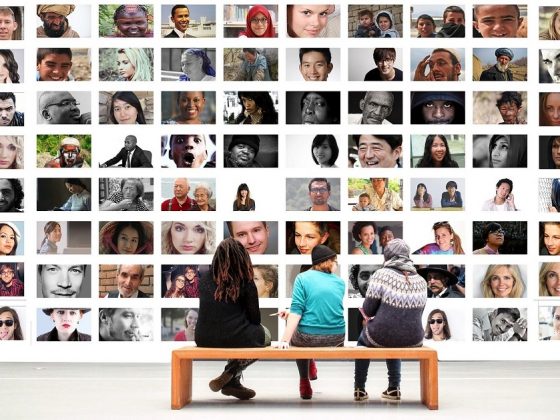Back in 2012, ARI Institute, of which I am the founder, published the book The Benefits of the New Economy: Resolving the global economic crisis through mutual guarantee. The book outlined a futuristic job market where few people work and provide for the needs of the rest of humanity, while all other people are occupied in “heart-jobs,” connecting their hearts and creating a social environment of mutual responsibility and care.
A few years later, the idea began to take hold as governments began to toy with the notion of Universal Basic Income (UBI) which stipulates that governments guarantee people’s basic livelihoods. Journalist Thomas Friedman grasped the idea more clearly in 2017 when he wrote that in the future, people will have to “create more value with hearts and between hearts.” In an interview with the British Council, Friedman said, “We used to work with our hands. Machines replaced that but we started to work with our heads instead in a knowledge economy. …Next I think we’re going to work more with our hearts.” He was right; machines will do the rest.
“The social benefits from such jobs are obvious: solidarity, absence of crime and violence, enhanced mental and emotional resilience, and a general sensation of contentment with life. But there is another major benefit that this occupation will present: personal realization of aspirations. Since people will contribute their skills and energy to benefit the society, the society will have a vested interest in the personal fulfillment of people’s dreams.”
A Future of Zero Unemployment and Absolute Satisfaction
When it comes to working with the heart, there is no such thing as unemployment. Everyone can and must contribute. We need to understand that the world is going through a major shift. People are developing a new and fresh approach to reality, even if they’re not yet aware of it. The “jobs” we’ll have in the emerging reality will require working with our thoughts about each other, our social connections, and our desires, while machines do the physical and “intellectual” work.
The “jobs” we’ll have in the future will require our internal powers. Until today, we have employed only one natural force—the egoistic force that strives to benefit the self at the expense of others. But the world has come to a point where we cannot keep using only that force since it is pushing human society and the whole planet into a chasm of unbridled selfishness.
Unlike humans, nature is balanced, with two forces that operate in it—a positive, giving force alongside a negative, receiving force. Now, we too must tap into the positive force and activate it if we want to restore balance in our world. Just as our will power, our passions and desires pushed us to great achievements for ourselves, now they will push us to achieve great things for all of reality, and especially for human society. We will still work with our desires, with our will power, but that desire will work in the opposite direction than the one we have utilized thus far; it will work toward uniting people together in a bond of care and affection, warmth, and love, above all the contrasts in human society.
It’s not as if we haven’t been using the positive force altogether. We have, but only on a very basic, biological level, to keep our bodies healthy. But when it comes to our social lives, we lean far too much toward self-centeredness, to the point that throws human society off balance and evokes the clashes and conflicts we are seeing today.
So now that more and more people have ample free time, we must begin to overhaul society. People’s basic sustenance must be secured, either via monetary benefits or stamps or delivery of goods to everyone, while their time is filled with social activities that enhance the giving force within them.
The new “job” will require everyone’s participation. Since it concerns reshaping all of society, everyone will partake in the transformation: men, women, those with “regular” jobs, and those without.
The social benefits from such jobs are obvious: solidarity, absence of crime and violence, enhanced mental and emotional resilience, and a general sensation of contentment with life. But there is another major benefit that this occupation will present: personal realization of aspirations. Since people will contribute their skills and energy to benefit the society, the society will have a vested interest in the personal fulfillment of people’s dreams. If, for instance, a person dreams of being a great scientist, is it not in the interest of society to help realize that person’s dream? What about a great leader, athlete, or anything that one may want to do? As long as one uses one’s talents to benefit the society, the society will have a vested interest in realizing those ambitions. And the best part about it is that once a person achieves one’s goal, he or she will discover that the greatest joy is not in completing the feat, but that completing it makes other people happy. This will be the utmost confirmation that one’s goal has been worthy, and nothing is more rewarding than to know that one’s goal in life has been a worthy one, and has made a lasting, memorable impression on humanity.
There will be labor pangs along the way to this ideal society, but it is already within reach. The sooner we begin to work on building it, the sooner it will become our reality. The necessity to leave the ego-based existence is already evident; now it is up to us to determine how long it will take to build a balanced world of mutual care and solidarity.











